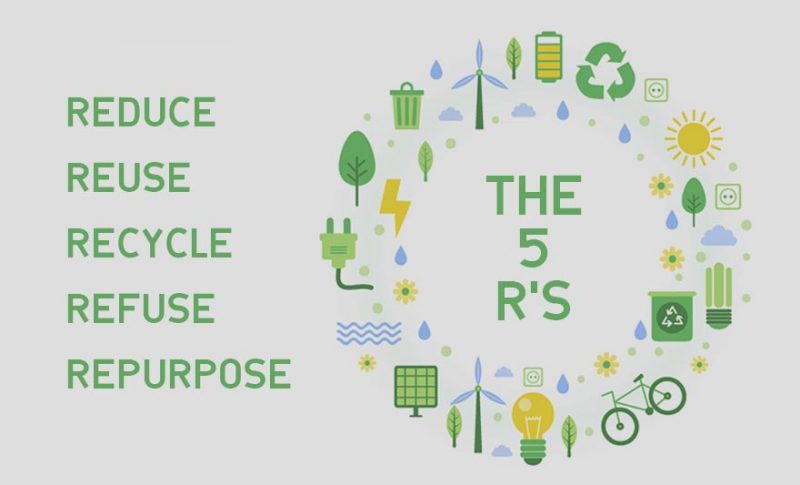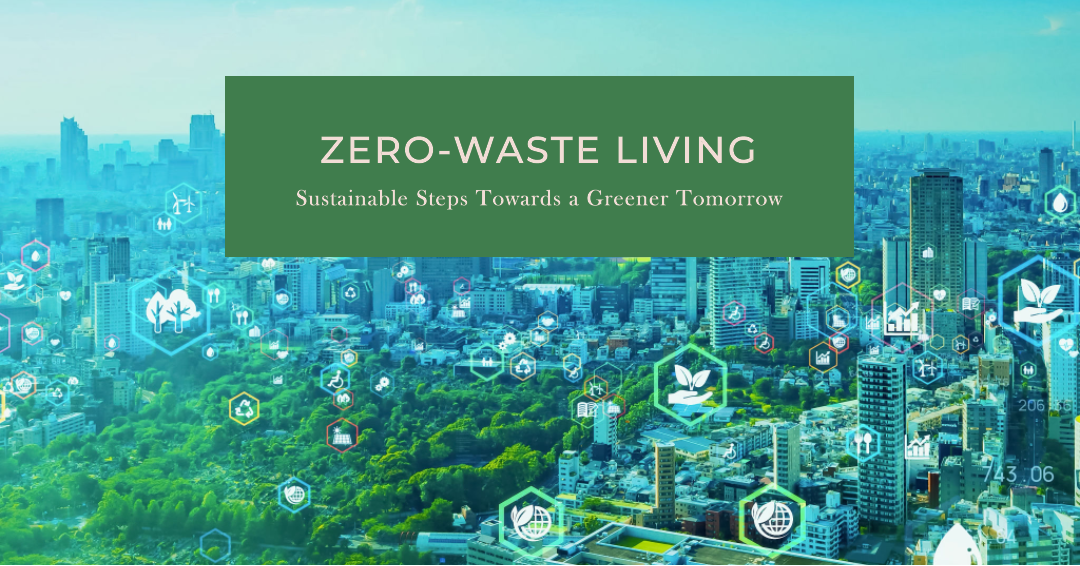In a world where single-use plastics and disposable goods dominate, transitioning to a zero-waste lifestyle may seem daunting. However, it’s a journey worth embarking on, not just for the environment but also for personal well-being. Adopting zero-waste practices can lead to a simpler, more intentional life. This guide outlines ten practical steps to help you reduce waste and embrace sustainability.
Introduction
1. Refuse Unnecessary Items
The first step in reducing waste is to refuse items you don’t need. This includes promotional freebies, plastic straws, and excess packaging. By saying no to these, you prevent them from entering your home and, eventually, landfills.
2. Reduce What You Consume
Be mindful of your consumption habits. Before purchasing, ask yourself if the item is necessary and if it can be reused or repurposed. Opt for quality over quantity to ensure longevity and reduce the frequency of replacements.
3. Reuse and Repurpose

Instead of discarding items, find ways to reuse or repurpose them. Old jars can serve as storage containers, and worn-out clothes can be transformed into cleaning rags. This not only reduces waste but also sparks creativity.
4. Recycle Responsibly
Ensure that recyclable materials are properly sorted and cleaned before disposal. Familiarize yourself with local recycling guidelines to ensure that items are processed correctly and don’t end up in landfills.
5. Compost Organic Waste
Composting organic waste like food scraps and yard trimmings reduces landfill waste and provides nutrient-rich soil for gardening. Even in urban settings, composting can be done using small bins or community composting programs.
6. Choose Sustainable Products
Support brands that prioritize sustainability by offering products with minimal or recyclable packaging. Purchasing in bulk can also reduce packaging waste and save money in the long run.
7. Opt for Reusable Alternatives
Replace single-use items with reusable alternatives. Carry a reusable water bottle, shopping bags, and containers. These small changes can significantly reduce your daily waste output.
8. Support Local and Eco-Friendly Businesses

Patronize local farmers’ markets, thrift stores, and businesses that emphasize sustainability. Supporting these establishments promotes a circular economy and reduces the carbon footprint associated with mass production and transportation.
9. Educate and Involve Others
Share your zero-waste journey with friends and family. Educating others can create a ripple effect, leading to a community-wide reduction in waste and a collective effort towards sustainability.
10. Embrace Minimalism
Adopting a minimalist mindset can complement a zero-waste lifestyle. By focusing on what truly adds value to your life, you can reduce unnecessary possessions and the waste associated with them.
Conclusion
Transitioning to a zero-waste lifestyle is a gradual process that requires commitment and mindfulness. By taking small, intentional steps, you can make a significant impact on the environment and lead a more fulfilling life. Remember, every piece of plastic avoided and every item repurposed contributes to a healthier planet. Start today, and inspire others to join the movement towards a waste-free future.
Transitioning to a zero-waste lifestyle isn’t about perfection—it’s about progress. It’s a journey filled with learning, small wins, and gradual shifts in how we view the things we use and discard. Each step, no matter how small, makes a difference. Whether you’re swapping out plastic bags for cloth ones, composting for the first time, or simply saying “no” to a disposable cup, you’re helping to create a future where waste is the exception, not the norm.
More than just a way to reduce our environmental footprint, zero-waste living invites us to be more intentional, more connected to our choices, and more respectful of the planet we all share. It’s a lifestyle that values simplicity, mindfulness, and responsibility. It’s about leaving the earth better than we found it—not just for our own peace of mind, but for the generations that come after us.
And the best part? You don’t have to do it all at once. Start where you are, use what you have, and grow from there. Celebrate progress over perfection, and don’t underestimate the influence of your actions. Because when individuals choose to live more sustainably, communities change. And when communities change, the world follows.
A zero-waste life isn’t about having one person do everything perfectly—it’s about millions of people doing it imperfectly but with purpose. So start today, and remember: small changes, when done consistently, lead to big impact.
Saudi Arabia and Muslim Nations Welcome Ramadan 2025 Amidst Diverse Circumstances



